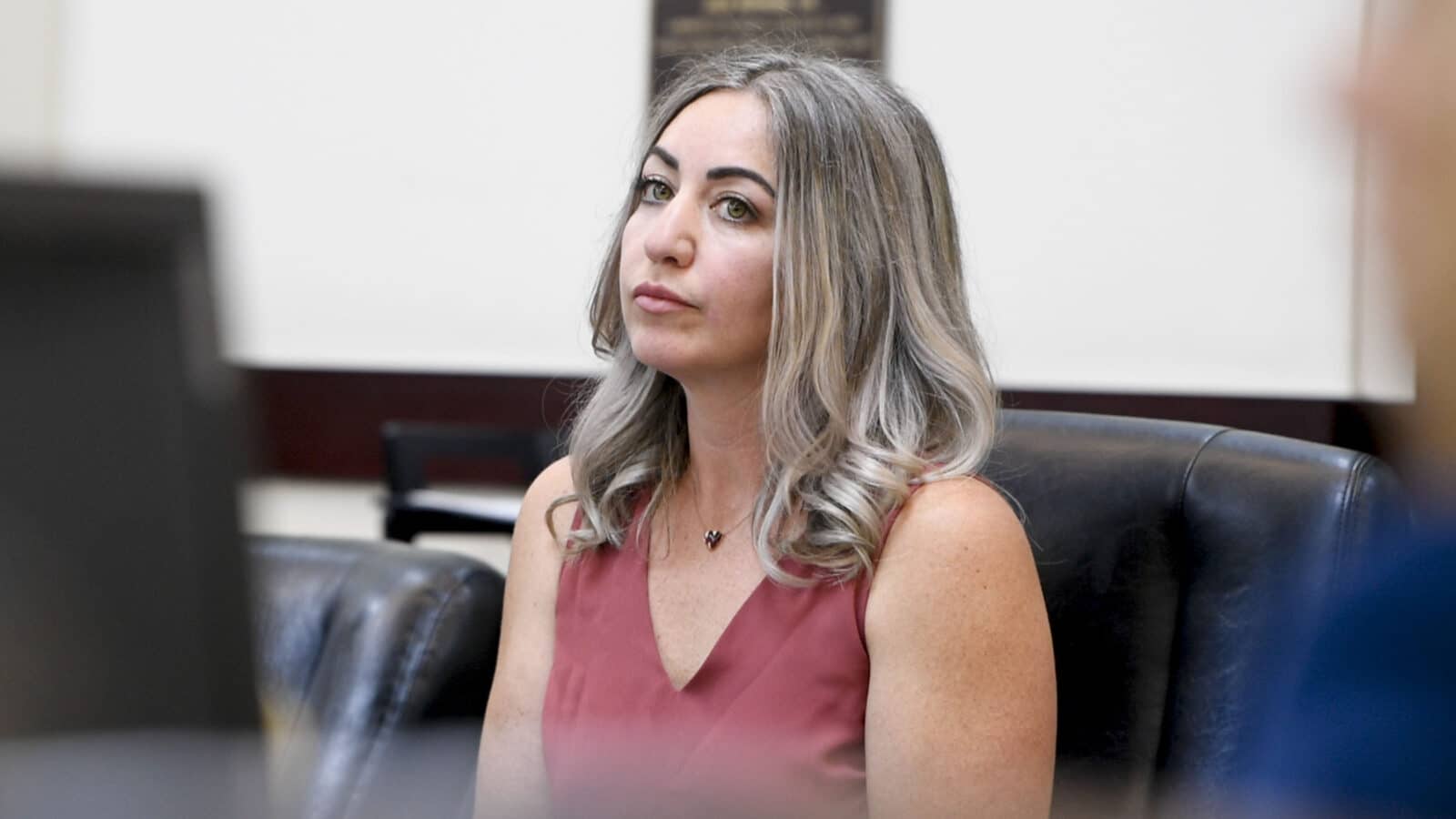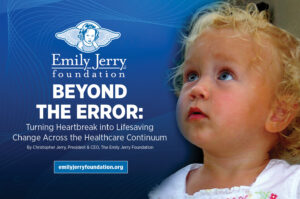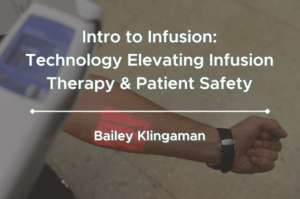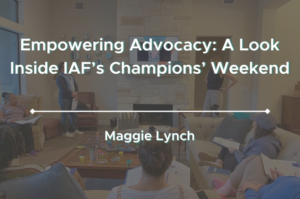Two years after RaDonda Vaught was found guilty of negligent homicide and abuse of an impaired adult due to a medication error, she came forward in an interview with the World Socialist Web Site to share her account of the event and how she got through such an unimaginable experience.
It has been two years since Nashville nurse RaDonda Vaught was found guilty in her criminal trial and sentenced to three years of probation. In her interview with the World Socialist Web Site in March of 2024, she opened up about the error, sharing additional details about the circumstances involving her mistake and the systemic issues within Vanderbilt that enabled the error 1.

Despite the challenges and prejudice she has faced over the last seven years, Vaught is an example for all second victims who feel as if they’ve lost their hope and drive for life. For any clinicians struggling with the emotional and/or professional fallout from a medication error, know that there is hope and support available to you, and like Vaught, an error does not need to define the rest of your life.
A Review of the Timeline
Below is a timeline highlighting the major events of the error, trial, and hearing. A complete timeline can be found by The Tennessean.
October, 2015 – Vaught begins working at Vanderbilt University Medical Center.
December 24, 2017 – Murphey is admitted to Vanderbilt for a subdural hematoma.
December 26, 2017 – Murphey is prepped to leave Vanderbilt barring a final scan when she is prescribed VERSED (midazolam). Vaught administers vecuronium to Murphey, which leaves Murphey brain dead. Vaught admits her mistake to hospital officials.
December 27, 2017 – Murphey is disconnected from her breathing machine at 1 a.m. Her death is reported to the Davidson County Medical Examiner and deemed “natural”.
January, 2018 – Vaught is fired from Vanderbilt.
October 3, 2018 – An anonymous tip alerts officials to the unreported error involved in Murphey’s death.
October 23, 2018 – The Tennessee Department of Health decided not to pursue disciplinary action against Vaught.
October 31 to November 8, 2018 – The Centers of Medicare and Medicaid Services (CMS) conducts an investigation at Vanderbilt, confirming the unreported error.
February 4, 2019 – Vaught is publicly identified when she is arrested for reckless homicide and impaired adult abuse.
February 20, 2019 – Vaught makes her first appearance in criminal court and pleads not guilty to all charges.
August 20, 2019 – Nashville Medical Examiner Feng Li re-examines Murphey’s death and deems it “accidental”.
September 27, 2019 – The Tennessee Department of Health reverses its previous decision not to pursue disciplinary action against Vaught. The Department charges Vaught with unprofessional conduct, abandoning or neglecting a patient that required care, and failing to maintain an accurate patient record.
July 22, 2021 – Vaught’s disciplinary hearing begins.
July 23, 2021 – The Tennessee Board of Nursing decides to revoke Vaught’s nursing license
September, 2021 – Vaught’s appeal of the Board of Nursing’s revocation of her license is denied.
March 21, 2022 – Vaught’s criminal trial begins.
March 25, 2022 – Vaught is found guilty of criminally negligent homicide and abuse of an impaired adult.
Vaught’s Account of the Error – Additional Details
It was the day after Christmas when Murphey was prescribed VERSED and the medication error occurred. There was a minimal group on duty, which meant a delayed treatment plan and discharge.
Due to her severe anxiety with Positron Emission Tomography (PET) scans, whole-body scans that require the patient to be completely still, Murphey’s primary care team had discussed a muscle relaxant with her family. Because of her positive response to treatment, Murphey had been granted permission to be “off monitors”, meaning she did not need a heart monitor or nurse accompaniment.
Murphey had already been injected with a radiotracer – a chemical compound used during PET scans to look for cancer – meaning the scan needed to be completed within an hour. If not, the radiotracer would have metabolized and the scan would need to be postponed to another day.
Vaught had not been assigned any patients on this day and was instead working as a “help all nurse” to assist other nurses in their tasks. Murphey’s nurse had been tasked with supervising patients for a colleague and was unable to administer Murphey’s medication within the time limit, so he asked Vaught for her help. Vaught asked the nurse if Murphey would need any monitoring, and he informed her that she would not.
Vaught tried to locate VERSED twice in the electronic medication cabinet but could not find it under Murphey’s profile of medications. After checking her Medication Administration Record (MAR) and confirming the order for VERSED, Vaught tried for a third time to extract it from the cabinet. When it still did not dispense VERSED, knowing the order had been placed, Vaught utilized an override of the system.

According to Vaught, the medication cabinet did not have an option to dictate a search for the generic or brand name of a drug; the system automatically defaulted to the generic name 1. This being so, Vaught would have needed to search for midazolam instead of VERSED.
Needing to override the cabinet was not a surprise, as the hospital had been experiencing delays for the last two months. “In early November we had launched EPIC, the new electronic record system, which was creating delays with random drug orders not coming through,” said Vaught.
After overriding the system, she retrieved the medication that would later be identified as vecuronium. According to Vaught, there were no special warnings typical for a paralyzing agent that appeared, such as a notice stating that a physician must be present or a second clinician needed to witness the drug being pulled from the cabinet.
“If they had been there, it would have been transcribed in her MAR when I withdrew [vecuronium] because you must acknowledge certain things along the way as you try to select a medication,” Vaught said.
In order to override the cabinet, Vaught needed to select a reason for the override. This reason would have been attached to Murphey’s MAR, which would have triggered warnings about vecuronium being a paralytic. However, due to all of the issues and delays the hospital had been experiencing lately, it was common that nurses would select the first available reason for override in order to access the medications faster.
If the procedures for the medication cabinet had been in place and working properly, a second nurse would have needed to be present for Vaught to withdraw vecuronium and there would have been an alert in the system.
Vaught speculates that these were not functioning properly due to software or functionality issues, or that this was a purposeful override put in place. “Maybe the machines were in some form of an override function themselves to make it more accessible for us to get the medications we needed in a timely manner while they were trying to figure out why things weren’t communicating.”
Vaught also recognizes that the vial she withdrew was in a powder form, while VERSED is a liquid vial. Due to several drug manufacturing facilities halting production after Hurricane Maria, Vanderbilt had been receiving medications in various brands and forms, said Vaught. Among these were powdered medications that would need to be reconstituted before administration.
In addition to the varying forms of medications, paralytics typically have a characteristic red cap to visually signify to clinicians that it is a higher-alert medication. However, the vial of vecuronium that Vaught withdrew had a gray cap, as was common for a drug like VERSED that did not require additional alerts.
Vaught admits that she should have paid closer attention to the medication she was administering, but that she had become desensitized to some of the otherwise abnormal circumstances she encountered.
After administering one milliliter of the vecuronium solution and flushing Murphey’s IV with normal saline, Murphey left Vaught with the nuclear medicine technician, assuming she would be immediately scanned. Instead, Murphey was taken to a radiation-repellent waiting room with limited visual monitoring and no audio monitoring where she would later be found unresponsive.
After Murphey was found, she was quickly hooked up to a ventilator and stabilized in the neuro ICU. It was at this point that Vaught became aware of her mistake.
“I was drawing another set of labs and went across the hall to tube them to the lab when her primary nurse approached me with the medication bag I had previously given him. He asked me if this was what I gave the patient. I looked at it and said yes it was. He said, ‘This isn’t Versed.’ I asked him what it was, and he said, ‘Vecuronium!’”
Vaught immediately completed the labs she was working on and notified the critical care anesthesiologist, resident physicians, and critical care nurse practitioners of the medication mix up before excusing herself and reporting to her nurse educator’s office.
How did she feel after the error?
While in her nurse educator’s office, Vaught knew she wasn’t in an appropriate state of mind to return to work. She spoke with numerous hospital staff on what she should do, and they helped her understand the process of filling out an incident report. Once the report was completed, Vaught left the hospital for home.
Her house was an hour from Nashville, and when she finally made it home, she was alone. Her husband was overseas and she didn’t have any way of contacting him. While Murphey had not passed yet, Vaught had already prepared herself for that outcome and was experiencing the first symptoms associated with second victims.
“It doesn’t take very long without oxygen to your brain to cause permanent damage. I went over everything again and again asking, ‘What did I do to her?’ All these things were running through my mind. I couldn’t sleep,” said Vaught.

She had already been scheduled to have a week off and was intending to meet family in Alabama the following day, but she found herself unable to concentrate on the drive ahead. At 5 a.m. on December 27th, Vaught called the hospital to check on Murphey and learned that she had passed earlier that morning.
“I think I just hung up the phone. I don’t really remember. The only other person I knew to call at five o’clock in the morning was my unit manager. I was inconsolable. We talked for a few minutes. And at that point I was already on the way to Birmingham. I didn’t want to be alone.”
On the day Vaught was scheduled to return to work, she was called into a meeting and terminated from her position at Vanderbilt. While she had previously expected the worst, including termination, losing her license, and jail time, the conversations with her nurse educator and the hospital staff on the day of the error had reassured her that this was ultimately a system failure.
When she was terminated, she was told that it was not a result of the outcome and Murphey’s death, but because Vaught failed to follow Vanderbilt’s medication administration policy. This policy referred to “the five rights of medication administration: right patient, right drug, right time, right dose, and right route.” As Murphey had not administered the right drug, she had not followed the policy.
How did she feel about the trial and losing her license?
“I made myself an easy target,” said Vaught. “Unfortunately, when you’re talking with someone whose job is to investigate a crime, they mean what they say when they tell you that everything you say can and will be used against you.”
Vaught firmly believes that had Vanderbilt reported the error and conducted the appropriate investigations and policy adjustments, there would not have been a crime. But, because Vanderbilt did not adequately disclose the error, it became a crime and Vaught was the easiest out.
For an entity like Vanderbilt, which dominated local healthcare and provided jobs for a large percent of the local population, a high-profile criminal investigation would have had serious consequences. “But if someone is charged, then it’s a backdoor way of excusing them for their failures. It gives them an out while they save face. And I was an obvious easy target,” Vaught said.
At the time of her arrest, Vaught was overcome with anxiety. She had never been an anxious person, she said, but she felt as if her life was falling apart and she had no control.
When the Tennessee Board of Nursing decided to revoke her license, Vaught said she was incredibly upset. “I was honestly quite shocked that there was no corrective action. There was no continuing education; there was no suspension or even probationary period on my license.”
Originally, she had not wanted to file an appeal of the board’s decision, believing that she would never be capable of practicing again, even if she received her license back. According to Vaught, her lawyer had already filed the appeal before she could express her opposition. However, the longer she thought about it, the more she began to care about the appeal.
“The more I started looking at this from an objective point of view, it really didn’t sit well with me that there was no transparency within the Board of Nursing,” said Vaught. “To this day I have yet to see the files on their first investigation. I have no idea what they concluded.”
As we know, this appeal was later denied in chancery court, but Vaught said she and her lawyer have since appealed again to the Tennessee Court of Appeals. Her goal now is to fight for clarity on their decision and improve the disciplinary system for other healthcare workers 2.
How did she make it through?
Fortunately, Vaught was surrounded by friends and family during the onset of the fallout after her error. She believes that this support system is what initially motivated her to keep going. It wasn’t until Vaught’s case gathered heavy media coverage that she began receiving support from other clinicians across the country. According to Vaught, this is what fueled her desire to fight back.

“I decided then and there I was going to fight. I wasn’t going to settle and admit I was guilty. I wasn’t going to be the one to set the precedent that they can bully a nurse into a corner and make her say, ‘Yes, I am a criminal!’ If that’s what they wanted to do, they’d have to prove it in front of the entire world.”
She first began to experience this wave of attention in February of 2019 when she was arrested. Nurses from all over the country had taken to social media to discuss her case, and many felt as if this could have happened to them.
While Vaught was found guilty of the charges against her and faced imprisonment, she had made a deal with the prosecution in order to stay out of prison, not just for herself, but for all of the nurses she had begun to represent.
“I would have been setting every nurse out there up for failure,” said Vaught. “I feel like I’ve already done enough to disappoint my career field. I damn sure wasn’t going to be the one that conceded to their notion that we’re a bunch of criminals out here. Because it’s not the case.”
What does she want for the industry?
While she is no longer an active clinician in the healthcare industry, Vaught still has hope and calls on those that can implement change. By appealing her license revocation, even though she does not believe she would ever use it again, she is fighting a battle for transparency and communication.
Like many clinicians and organizations that rallied behind her during her trial and disciplinary hearing, Vaught knows that errors are impossible to eradicate completely. Rather than punish those who make a mistake, we need to learn from them and foster solutions.
“I think we need to start treating [errors] as opportunities – as learning experiences – and take responsibility across all members of our healthcare teams, whatever your profession is….We owe it to our patients,” Vaught said. “We need to look deeper because things aren’t working. But I don’t know if I have the solution.”
What is she up to now? – Giving Hope to Second Victims
Unable to practice and with another year of probation, Vaught currently runs Hidden Holler Farms with her husband. They began HHF in 2016, before the error occurred, but it wasn’t until August of 2021 when Vaught left her last clinical position that it encompassed her full attention.

While she still struggles with anxiety and depression, she is incredibly grateful for the forgiveness she was shown by Murphey’s family, the support she received from hundreds of clinicians, and the love from her family.
“I learned that it’s okay to ask for help from people and accept that help. And I learned that there is far more kindness and goodness in the world than I think most people believe that there is. And it was a beautifully humbling experience to be on the receiving end of that. The show of kindness and forgiveness I received from her family is something indescribable. It’s a profound part of my life to have been on the receiving end of that much grace and kindness.”
What Vaught has faced in the last seven years is an unimaginable experience. It has not only changed what she wakes up every day to accomplish, but how she approaches others and her understanding of the healthcare system.
Her trial may be over, but her fight is not.
For any clinicians who have experienced a medication error and are in need of support, you do not need to suffer in silence. The following resources are available to you:
See if your organization offers support services, or implements a Second Victim Support Program.
Read articles providing guidance on accepting responsibility, working through feelings of remorse, and recovery, such as:
-
The Journal of Urgent Care Medicine – Overcoming the Trauma of Making a Medical Error: Self-Forgiveness is an Important Skill for Recovery
-
The American Academy of family Physicians – 5 Ways to Respond to a Medical Mistake
-
Becker’s Hospital Review – What helps physicians after committing a serious medical error? 7 Steps to Recovery





3 Responses
Your story is probably all too familiar to a lot of nurses out there. I feel you did what you were suppose to do. You said something about the medication. It was the hospital who failed you. They should have had a red cap on top of the medication instead of a Grey one. If I was the family I would have forgiven you too. Please don’t be hard on yourself. You were a victim like you said, a second victim.
Thank you for sharing your story and journey.